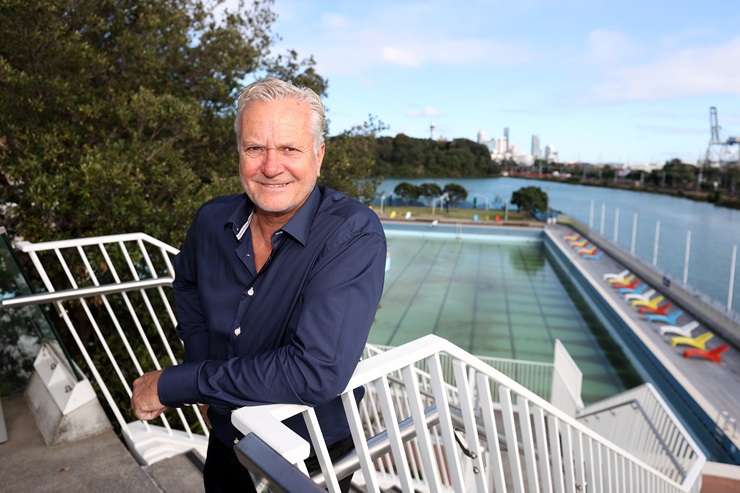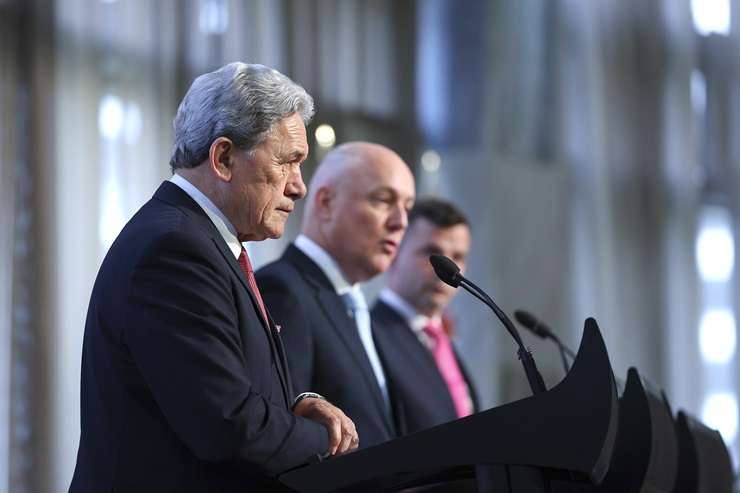Prime Minister Christopher Luxon has ditched his promise to overturn the foreign buyer ban.
As part of Luxon’s coalition agreement with New Zealand First and Act, National’s tax plan “will not include a repeal of the foreign buyer’s residential property ban”, National announced today.
National’s election pledge to introduce tax cuts for Kiwis would still be fulfilled, the party said, but would no longer be partly funded by the taxing of $2 million-plus property purchases by foreign buyers.
Read more:
Start your property search
- Tony Alexander: Three global threats that could derail house price revival
- Rich-lister selling NZ's largest Bunning Warehouse
- Glamorous Auckland boat shed likely to break $2.05m price record
New Zealand First had shown antipathy towards a reversal of the foreign buyer ban, which was introduced when it was in government with Labour in 2018.
Real estate agents, especially those at the upper end of the market, had on the whole welcomed the repeal of the foreign buyer ban when it was first promised, with some highlighting an increase of overseas searches in New Zealand property.
OneRoof canvassed multiple agents and housing market experts for their reaction to the news. The overall sentiment from agents was disappointment.
Graham Wall, of Wall Real Estate, who deals mostly in $10m-plus sales, said: “If we don’t want New Zealand to be part of the real world, we’ve chosen the right prime minister. I can’t believe a man with 38% of the vote can be such an inept negotiator.
“It really won’t make much difference to property values at all, given the tiny percentage of foreign buyers in the market, but it was just a chance to step up and we’ve blown it.”
Another prestige agent, who did not wish to be named, was frustrated by the decision.
“It’s a shame that optically we’re going to be seen as closed again,” the agent said.

CoreLogic chief economist Kelvin Davidson: "There are no foreign buyers now and won't be any in the future, so no change." Photo / Peter Meecham
“We had been fielding lots of enquiries [when the policy was announced] and it’s a total shame that these wealthy investors will look elsewhere. Our loss is Australia’s gain.
“It’s also frustrating for vendors. They were excited about the opportunity to market their properties overseas.”
The agent added: "Hopefully it is reviewed in a while and they look at it again.”
CoreLogic chief economist Kelvin Davidson told OneRoof the decision wouldn’t have any impact on the current state of the housing market.
“There are no foreign buyers now and won’t be any in the future, so no change,” he said.
Under the current foreign buyer ban, overseas purchasers are prevented from buying existing residential properties in New Zealand. There are exceptions to buyers from Australia and Singapore, and those buying off-the-plan under certain circumstances.
Davidson said he was skeptical of how many foreign buyers would enter in the market if the ban was repealed. Before the ban, 3% of house sales involved foreign buyers. National had expected to bring in $740m a year from the 15% tax.
“We were always a little bit skeptical of how many would come anyway. There are not actually that many houses in New Zealand in that $2m-plus bracket.”

Ray White Epsom agent Ross Hawkins: "I can't imagine anyone's delighted." Photo / Fiona Goodall
Telos group owner Caleb Paterson, who deals in high-end properties on Auckland’s lifestyle fringes, had noticed an uptick in overseas enquiries from wealthy house buyers after National’s promise. He was not surprised by the decision “based on how negotiations [between the parties] have gone”.
“There had been rumours it was off the cards. I’ve had a lot of conversations with homeowners expecting this might happen. I’ve already had one disappointed call from my buyer in New York who’s been monitoring this – on Thanksgiving, too! They’re pretty gutted. They really wanted to come here and invest.”
However, he noted that the market was already on the way up without foreign buyers.
Ray White Epsom agent Ross Hawkins, who sells in Auckland, Northland and Queenstown, was also not surprised by the announcement. “I had thought Winston Peters would see the logic of not taking foreign buyers away because he’d have seen the funds flow in,” he said.
“They buy the land and put that money into building, it all flows into the local economy.”

The three party leaders, Winston Peters, Christopher Luxon and David Seymour, announce their formal coalition deal. Photo / Getty Images
He added: “They could have at least raised the threshold to $3.5m or $4m, so that’s not affecting the lower market, but it is bringing in the big money. [Foreign buyers] buy a $5m property and then they buy other assets, the money goes around and created what we need for cash flow.
“I can’t imagine anyone’s delighted.”
Barfoot & Thompson agent Paul Neshausen, who sells in Auckland's Eastern Bays, echoed Hawkins' sentiments: "I think it’s a shame and very narrow minded. A lot of foreign buyers bring large amounts of cash with them. They buy properties, create jobs, create environmentally friendly developments, bird sanctuaries and pest eradication programs. These are the investments New Zealand needs to maintain our green image."
New Zealand Council of Trade Unions economist Craig Renney had previously cast doubt on National's ability to deliver tax savings with the foreign buyer tax.
"We always thought it was very unlikely New Zealand First would agree to a foreign buyer tax," he said.
"The total size of National's tax package was somewhere in the order of $14 billion, of which $3 billion was to be found from foreign buyers. What that means is that they now face a very significant fiscal gap in being able to finance the rest of their package.
"Our concern was that one of the ways in which you could address that gap was deeper cuts to public services. You'd have to find other sources of money or you have to delay tax cuts or you'd have to delay changes elsewhere. That becomes highly problematic - they'd have to make cuts to the rest of their programme."
Chris Farhi, head of insights at Bayleys, said the announcements by the Coalition Government, especially on the delivery of interest rate deductibility, would bring clarity to the housing market.
"We had viewed the foreign buyer ban change as providing a bit of an upside bonus, particularly at the higher end. So that not going ahead, but we don't see that being like a downside or a problem, just that you're not getting that nice little bonus.
"The policy we're more interested in is the reintroduction of interest deductibility. That's going to impact quite a wide spread of the market. People own investment properties across a pretty wide spectrum of prices, and those changes will actually put an injection of demand back into that market.
"The general view that you hear from most people is that investment properties are in that the lower end of the market where investors would be competing with first time buyers. That is correct for the the bulk of the demand for investors. But you also lot of investors who are accidental investors or they're just picking up properties that are a price point.
We know a lot of investors have been a bit gun shy in the past, since those policies have been implemented."















































































